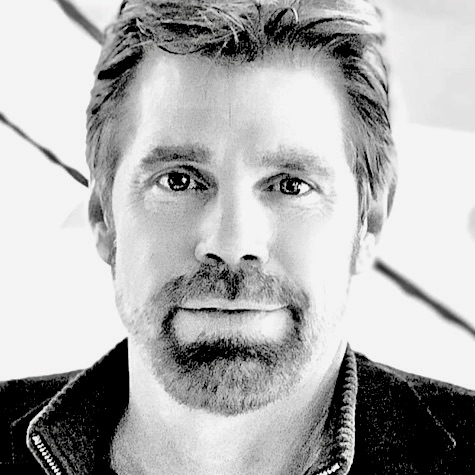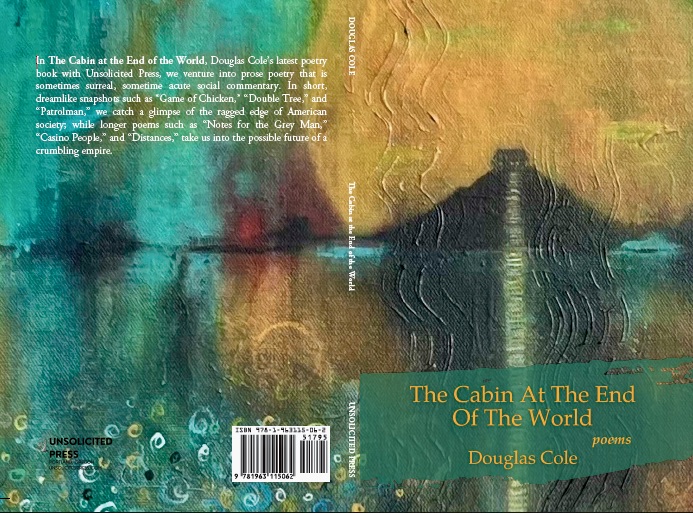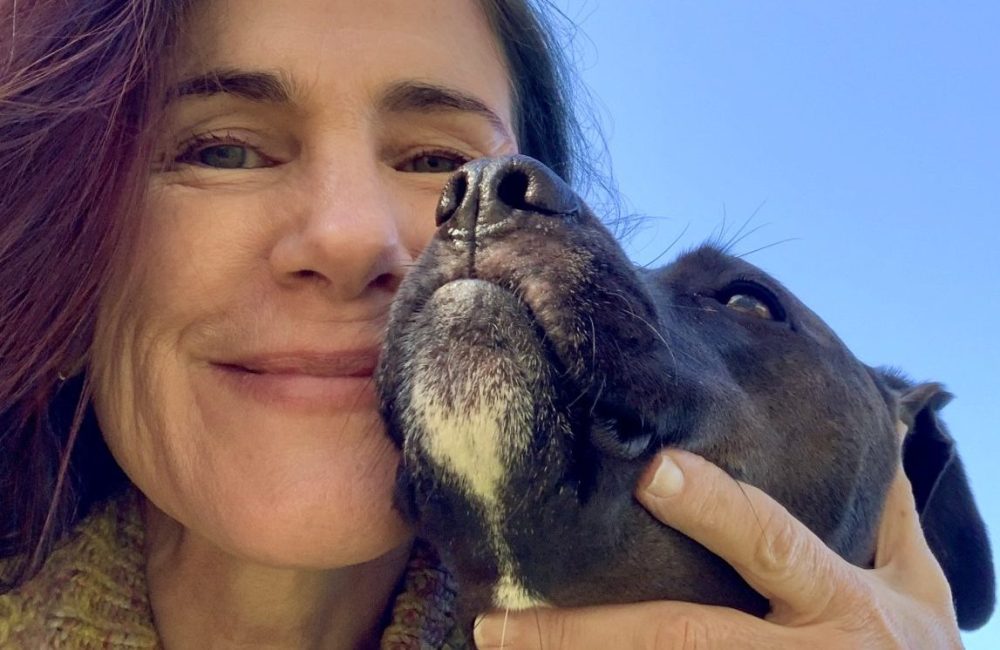Writing three novels (more about my books here) was hard. Querying literary agents, on the other hand, is brutal. Poetry, I hear, is even more difficult! Are you a poet or any kind of writer? Success stories invariably boost my spirits, so if they do the same for you…
Take heart — Seattle, Washington resident Douglas Cole has published six poetry collections, in addition to an award-winning novel, The White Field. In his spare time, hehe, he’s won multiple writing awards, screenwrites, contributes articles and editing to magazines and journals — and more, which you can read about at his website.

Oh, and he teaches, too… The book he mentions below, The Cabin at the End of the World, is one of two new books he has coming out this year…
Why the Prose Poem by Douglas Cole
Working on a poem and working on a piece of prose aren’t that different. You’re still in the trenches of the language, trying to get language to capture a feeling, an image, a moment, an idea, or to open doors and explore behind the architecture of the imagination and the physical world, to let language be a vessel as much as a document of what you’ve done or seen or thought.
I had a professor who said that if a poem is not metrical you can’t rightly say ‘stanzas’ but rather ‘paragraphs’, so there couldn’t actually be such a thing as a prose poem. And yet we agree prose poems exist. Edson, Forsche’s “The Colonel,” Charles Simic, the letters in 31 Letters and 13 Dreams, Baudelaire…we agree there’s such a thing as a prose poem. If we expand that possibility we might even argue that embedded in Joyce’s Finnegan’s Wake, Hurston’s Their Eyes are Watching God, Woolf’s To the Lighthouse—we see prose poetry working to get the language right.
 I think of the Black Mountain school of poetry, the line being a single breath. Is a prose poem still a poem if the lines are not controlled by the breath? The line as a singular unit, or as Theodore Roethke says, each line of a poem should be a poem. The Cabin at the End of the World is a collection of prose poems. It may look like prose on the page. I knew I wanted to explore the longer line (I’m thinking Whitman long). The line should be one breath, one thing. The line of a poem is a poem, the line as its own thing. That remained an aesthetic for me. It looks and reads like prose, but it’s poetry.
I think of the Black Mountain school of poetry, the line being a single breath. Is a prose poem still a poem if the lines are not controlled by the breath? The line as a singular unit, or as Theodore Roethke says, each line of a poem should be a poem. The Cabin at the End of the World is a collection of prose poems. It may look like prose on the page. I knew I wanted to explore the longer line (I’m thinking Whitman long). The line should be one breath, one thing. The line of a poem is a poem, the line as its own thing. That remained an aesthetic for me. It looks and reads like prose, but it’s poetry.
In The Triggering Town, Hugo targets the beginning and ending of lines for a noun or a solid image, especially a single syllable and beat. I love that. Keep that in mind… In The Cabin at the End of the World, the poems have a narrative, a journey, like a dream or a mind-movie. There’s a tendency to lean into the surreal…the idea of the poem nudging us out of unconscious lock-in to the day-to-day (as in the Russian Formalist de-familiarizing of the familiar). The surreal, the situational, the bizarre, the psychedelic has always attracted me because it gives room for language to take us out of ordinary and/or limited ways of thinking and feeling.
I see two ways of using language: the very open, very exploratory poetry, and the tap-your-foot-on-the-ground, solid-enough-to-stay-in-one-place prose. The prose poem has substance, solid block-on-the-page.
That’s the core. A Prose poem, straight-up prose, drama, screenplay—the issues remain the same: the dance with language, surrender to language, employment of language, observation of what language can do, the magic of language to show us what we wouldn’t have seen without a word, the magic of language to help us think beyond the world around us, have ideas we may not have had taking us to the edge of that ideal realm like Plato says, to see through the chain link fence, to make manifest the intangible and give form to the unexpressed in unique and perfect ways.
What sort of writing resonates for you?


In prose, we must guide the eyes, that read. It’s the writer’s duty.
LikeLiked by 1 person
Poetically said Paul 😃
LikeLike
I so enjoyed reading this post about Cole’s details about his writing process.
LikeLiked by 1 person
Thank you Carol 😃
LikeLike